- Home
- Joel Goldman
Final judgment lm-5 Page 5
Final judgment lm-5 Read online
Page 5
His exercise routine alternated between running and rowing, not only because of the cross-training benefits, but to avoid boredom. He had played rugby until a few years ago when it became too hard to get out of bed the morning after a vicious scrum. Conceding that he was forty-three, he gave up the game, staying in shape with his current routine.
His house was in a tony neighborhood nine blocks south of the Country Club Plaza, Kansas City’s answer to New York’s Fifth Avenue, and two blocks south of Loose Park, a micro-scale alternative to Central Park. Kansas City didn’t claim to be the Big Apple of the Midwest, but it had long ago shed its cow-town image.
He lived in an area that was home to the upwardly mobile who were certain they’d arrived. Many of the people who lived there were fighting the same battle against time that he was, convinced that if they ran another mile they would live another day. Mason figured eight thousand meters was at least as good an investment.
His Aunt Claire had given the house to him and his ex-wife, Kate, as a wedding present. He’d grown up there with Claire, but the house had worked better for him and his aunt than it did for him and his wife. When Kate moved out, Mason refurnished the dining room with the rowing machine. Abby banished it to the basement, Mason hauling it back up when she left town, his love life defined by its location.
His dog Tuffy, a German shepherd-collie mixed-breed anti-watchdog, did three laps around the rowing machine before settling in front of the flywheel, enjoying the breeze from Mason’s labors.
The sky was rounding out to a gunmetal gray by the time he got out of the shower, dressed, and started scavenging for something that would pass for breakfast in his kitchen. He spread the Kansas City Star on the kitchen table while he chewed a nutrition bar that promised him more than it could possibly deliver.
There was a teaser above the masthead about an article in the Style section on how to make tomorrow, Valentine’s Day, special. Mason had bought a card for Abby, signed it, stuck it in an envelope, and then thrown it away. He didn’t want to be like the nutrition bar and promise Abby something he couldn’t deliver.
An hour later he was in his office, behind his desk, staring at the dry erase board. He used circles, broken and solid lines, boxes, triangles and any other geometry he could think of to link the people and facts of a case, making room for what he knew or suspected and taking stock of what he didn’t know or feared. He studied the resulting graffiti, searching for a pattern that illuminated the answers to the five questions-who, what, where, when, and why. Before retreating to his desk chair, he circled Charles Rockley’s name and drew a solid line to nowhere, punctuating it with a question: Who told Rockley about the tape?
Blues was right. If Rockley had only been employed at Galaxy for a year, he couldn’t have known about the taped conversation between Ed Fiori and Judge Carter unless someone else at Galaxy had told him. Double-checking his reasoning, he pulled up Rockley’s personnel records from the arbitration file and reviewed Rockley’s employment history, comparing it to his testimony at the hearing.
Rockley was thirty-eight years old. He graduated from Ohio University with a business degree and worked a series of middle-level management jobs in unrelated industries before being hired by Galaxy a year ago. He was divorced and had moved around a lot, no job lasting more than a few years. Galaxy hired him to be a shift supervisor for blackjack dealers, a position that required more middle-level management skills than it did an understanding of when to hit on thirteen.
Rockley’s resume was that of a flat-liner, someone who had topped out early, substituting lateral moves for advancement. He was an invisible employee, never leaving a mark or a memory. Asked at the hearing why he’d moved from job to job, he answered that each new job was a better opportunity. It didn’t look that way to Mason, but it was an innocuous answer that Vince Bongiovanni, Carol Hill’s lawyer, didn’t challenge.
In her defense of Galaxy, Lari Prillman underscored something that was missing from Rockley’s employment history. He’d never been the subject of a complaint for sexual harassment. He was, at least on paper, a model-though decidedly undistinguished-employee.
Rockley’s deposition testimony read like the milquetoast image Mason gleaned from his personnel file. He gave polite, simple, and direct answers to the lawyers’ questions, refusing to take Bongiovanni’s bait and fight with the opposing lawyer. Mason could practically see him looking Lari Prillman squarely in the eye as he denied Carol Hill’s allegations with a carefully calibrated hint of outrage at her accusations.
All of which made Mason’s question- Who told Rockley about the tape? — all the more compelling. Rockley was the kind of guy who would never be in the loop on something so sensitive. There was nothing apparent in his past or present to explain why anyone at Galaxy would share with him the explosive information about Judge Carter or Mason.
Perhaps, Mason speculated, he’d stumbled onto it, realized its value, and decided to blackmail the judge to save his job. If so, Mason had grossly underestimated Rockley’s paper persona. Maybe Rockley was one of those guys who showed up at work one morning with an assault rifle and mowed down half a dozen coworkers before the cops shot him, leaving the survivors to scratch their heads and comment what a quiet guy he had always been.
Re-examining the dry erase board, Mason highlighted the names of Al Webb, the casino’s general manager, and Lila Collins, the HR director. Mason assumed that Webb was more likely than Collins to know about the taped conversations, but he relocated their names to the end of the line reaching from Rockley’s.
That was all Mason could do until he heard from Blues. He had no doubt that Rockley would talk to him. When Blues wanted information from someone, he rarely came up empty. The greater risk was what Rockley would do after Blues finished with him. Blues would motivate him to keep his mouth shut and make another career move, this one out of town. Mason was certain Rockley wouldn’t be missed at Galaxy.
If Rockley could point the way further up the food chain at Galaxy, Blues would make him draw a map. Mason would add that information to the dry erase board, knowing it was only a beginning. Rockley had to be the loose end of the thread, not the beginning.
He wasted ten minutes throwing darts at the target hanging on the wall across from his desk, arcing high lob shots, not paying attention to where the darts landed, just passing time. He had other cases to work on, but couldn’t muster his concentration. If the blackmail scheme blew up in his face, he’d be charged with corrupting a public official. He checked the Missouri Criminal Code. It was a Class C felony punishable by a sentence of up to five years in the state penitentiary. The statute of limitations hadn’t run.
He’d also lose his law license and, for the moment, that prospect chilled him as much as prison. Claire had motivated him to become a lawyer, though in the early years of his practice she had often chided him that he didn’t have the fire to become the kind of lawyer she had become. Someone who battled for the underdog, someone who was passionate not only about the law but about justice, sometimes squeezing justice out of a legal system too often reluctant to dispense it.
Claire had eased up on him since he had opened his own practice, spending most of his time defending people accused of crimes. Regardless of their station in life, they were always underdogs when compared to any state or federal prosecutor. Though now she teased him that he was finally showing some promise, he’d learned one fundamental truth about himself: Being a lawyer was who and what he was. Take that away from him and Mason wasn’t certain what would be left.
THIRTEEN
He drifted through the rest of the morning, walking two blocks down Broadway to a diner for a greasy cheeseburger at noon. The cold didn’t bother him. It had settled in his bones since Vanessa Carter’s visit.
The phone rang at three o’clock that afternoon. It was Pete Samuelson.
“What can I do for you?” Mason asked him.
“Why don’t you and Mr. Fish come back downtown and we’ll talk.
That is, if he doesn’t have any more dead bodies in the trunk of his car.”
“Does that mean you’ve decided to take our offer?”
“I can’t do that while the murder investigation is pending.”
“Then we don’t have anything to talk about.”
“Actually, we do. If your client agrees to cooperate with us, we may be able to help him.”
“How are you going to do that?”
“Just bring him downtown. Tomorrow morning. Eleven o’clock.”
Samuelson’s offer meant that he might know enough about the corpse in Fish’s trunk to exonerate Fish but that he hadn’t shared that information with the cops. If he had, the cops would have already given Fish a pass. That meant that the feds were holding out on the cops. It also meant that the feds were conducting their own investigation of a crime that was not in their jurisdiction.
Detectives Griswold and Cates weren’t the kind of cops who would give Mason a heads-up if they no longer considered Fish a suspect. Nor would they tell Mason if Mason called and asked them. They would enjoy letting Fish twist while the investigation ran its course.
Mason picked up his phone, dialing Samantha Greer’s cell phone number from memory. She was a homicide detective with whom Mason had had an on-again, off-again relationship for a couple of years before Mason met Abby. Since Abby left town, Samantha had done her best to fill the void in Mason’s social calendar. Lately she had lost some of the fire that had first attracted him. Working homicide could do that, gradually sucking the life out of you until you ended up alone and drunk. That hadn’t happened to Harry Ryman, a veteran homicide cop who was Mason’s surrogate father, because he had Claire. Samantha didn’t have anyone.
He still enjoyed her company but couldn’t give her the commitment she wanted, feeling guilty that he was stringing her along. The reason was the answer to the question in Tina Turner’s song. Love had everything to do with it. Somehow, they’d defied the odds against ex-lovers remaining friends, though Mason wondered whether that reflected Samantha’s wistful optimism that they would eventually end up together if she just hung in there.
“Detective Greer,” she said, answering on the first ring.
“Feeling official?”
“Feeling beat. Long night on a domestic abuse case that finally hit the finish line. The husband divorced his wife with a baseball bat.”
“Buy you a beer?”
“Business or pleasure?”
“Business first. My client, Avery Fish, a corpse, and your buddies Griswold and Cates.”
“That’ll take two beers. Davey’s Uptown Rambler Club. Meet you there at six.”
FOURTEEN
Mason ran into Blues in the parking lot behind Blues on Broadway. The potholes that Blues had filled the previous summer had returned, the asphalt giving way to the freezing, wet winter. The left front tire of Mason’s SUV rested in one crater, tilting it like a sinking ship. Only one of the two halogen lamps Blues had installed to light the back of the building was working. Blues was a much better piano player than he was a property manager.
The parking lot was narrow, bordered by an alley that ran between the buildings that fronted Broadway and a string of old, three-story apartments one block to the east that backed up to the other side. The high walls on both sides kept out light and warmth except when the sun was directly overhead, the urban terrain making a cold, dark night colder and darker.
They leaned against Mason’s SUV, Blues nearly invisible in a black leather jacket, Mason cupping his hands, blowing on them for warmth. Mason hadn’t seen or talked with him since their first conversation about Rockley.
“Any luck?” Mason asked him.
“Zero.”
“Try his house?”
Blues’s expression didn’t change, even though Mason knew it was a stupid question the moment he asked it.
“Three times. Lives in an apartment up north. His mailbox is full. Nobody has seen him. But we’re not the only ones looking for him. One of the neighbors told me someone else came around yesterday.”
“Get a name?”
Blues shook his head. “I asked if he left a business card. The neighbor said no. Cops, FBI-always leave business cards. PIs almost always leave business cards.”
“So who doesn’t leave a business card?”
“Somebody who wants you for the wrong reason.”
“Is Rockley still working at Galaxy?” Mason asked.
“I don’t know. I called Galaxy and asked for him. The operator connected me to his extension and I got his voice mail. It said leave a message and I’ll get back to you. I called back, said I got his voice mail but it was important that I talk to him right away. The operator transferred my call to a woman named Lila Collins.”
“She’s in charge of HR,” Mason said.
“Or bullshit. She told me that she wasn’t permitted to release any information about employees. Talked like he still worked there.”
“Did she ask you who you were or why you wanted to talk to Rockley?”
“Not a word. It was like she was waiting for the call. Made her little speech and hung up without saying good-bye.”
“What do you think?”
“I think Rockley’s hiding out until Judge Carter issues her ruling and Galaxy is helping him do it.”
“That fits with our theory that Rockley had help with the blackmail. What now?” Mason asked.
“I’ll keep looking.”
“You’ve got a bar to run and I’m not paying you.”
“You paid me in advance three years ago,” Blues said.
FIFTEEN
Davey’s Uptown Rambler Club was at the corner of Thirty-fourth and Main, an intersection that was either seedy or had character, depending on your attitude toward bars, porn, and vacant storefronts. Davey’s was on the southwest corner. Ray’s Playpen was on the northwest, offering sexual novelties but no sex. The vacant storefronts were across the street on the east side of Main.
Further north were Crown Center, the Liberty Memorial, Union Station, and the Crossroads Art District. To the south were Thirty-ninth Street and Westport Road, two east-west arteries that had harnessed urban cool into successful restaurant and retail lifelines capturing the uptown flavor Davey’s claimed as its own. The waves of progress washed out before reaching Davey’s and Ray’s corner of the world. They didn’t mind and neither did their customers.
A large unlit neon sign that hung on the north side of Davey’s offered parking behind the bar. Mason used the rear entrance, following a short, dimly lit hallway past the john and into the bar. There was a large room to his right with a couple of pool tables, games in progress on both; the players were using their cues to balance themselves more than to make a shot.
Davey’s was long and narrow, three booths on Mason’s left toward the front, two round tables with stools in the center and the bar covering the wall on his right. A collection of bleached cow skulls and gold-painted ceramic cherubs hung above the rows of whiskey bottles behind the bartender.
The regulars manned the stools along the bar, nursing their beers. A television tuned to ESPN, the sound off, hung from the ceiling. One of the round tables was occupied by five guys unwinding on their way home. Mason caught enough of their conversation to know they were lawyers, nodding at their looks of recognition when they saw him. Mason accepted that he had a high profile, but he didn’t play off it.
Samantha Greer was waiting for him in the front booth, her back to him. The lawyers’ conversation softened as he passed, one of them saying hello and asking how it was going, Mason answering good enough, wishing it was.
He slid into the booth across from Samantha. She was midway through her first beer, tipping the bottle toward Mason.
“You’re late. I had to buy my own.”
“Better to owe you than cheat you out of it.” Mason reached across the table for her hand, squeezing it until she squeezed back a little too tightly. “Thanks for coming.”
�
�Couldn’t resist. Never could.”
They had known each other for four years. The first two years were marked by meteoric sex fueled more by need and loneliness than anything else. Recognizing it for what it was, they made mutual promises that they weren’t making any promises. Mason had kept his promise, but Samantha wished she’d never made hers.
“You changed your look,” he said.
She fingered hair that hung just past her chin. She used to be blond. Now she was some metallic copper shade.
“Cut it and colored it. I needed a change of pace. You like it?”
“Looks great,” he said, meaning it, glad to see a bright flicker in her green eyes.
Samantha finished her beer. “I bought the first round. Might as well stick with the program.”
He watched as she walked to the bar and bought two more bottles. She had a compact body, muscled enough to take down a suspect, soft enough to fit nicely against his, the memory indelible. He hadn’t seen her much while he was with Abby. Her hair wasn’t the only thing that had changed. Crow’s-feet stretched from the corners of her eyes, and there was a resignation in her face that was at war with the determination he’d once found there. He did some quick math. She was forty, or nearly so. Her birthday was this time of year, though he’d forgotten the date.
“Nice place,” Mason said, gesturing with his bottle when she returned. “You a regular?”
She shook her head. “I figured we should avoid a cop bar or Blues’s place. Not likely we’ll see anyone here who gives a crap if they see us together.”
“Who would care?”
“Griswold and Cates, for starters. They know our history. They’d assume that I was talking to you about their case, telling you things I shouldn’t tell you.”

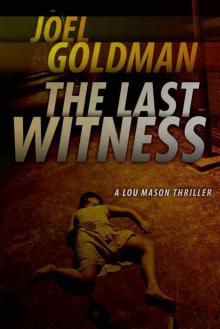 The last witness lm-2
The last witness lm-2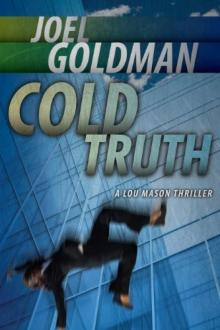 Cold Truth
Cold Truth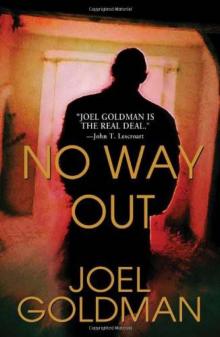 No Way Out (2010)
No Way Out (2010)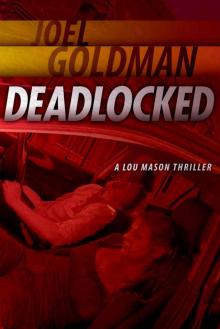 Deadlocked (Lou Mason Thrillers)
Deadlocked (Lou Mason Thrillers)![[Lou Mason 01.0] Motion to Kill Read online](http://i1.bookreadfree.com/i1/03/24/lou_mason_01_0_motion_to_kill_preview.jpg) [Lou Mason 01.0] Motion to Kill
[Lou Mason 01.0] Motion to Kill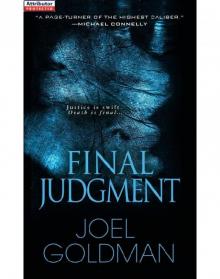 Final Judgment
Final Judgment Stone Cold
Stone Cold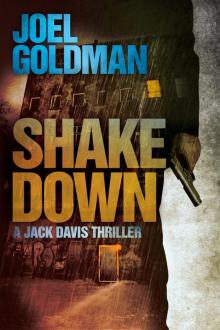 Shakedown
Shakedown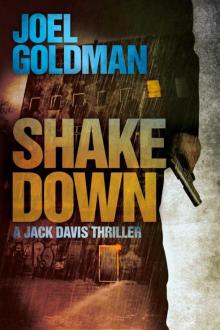 Shakedown jd-1
Shakedown jd-1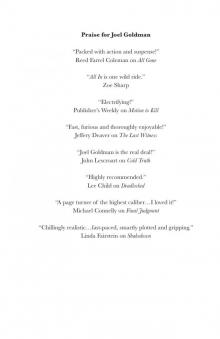 All Gone
All Gone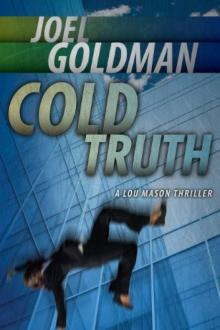 Cold truth lm-3
Cold truth lm-3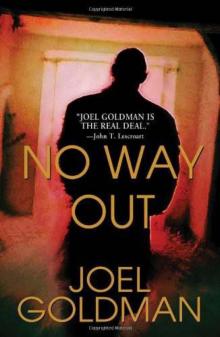 No way out jd-2
No way out jd-2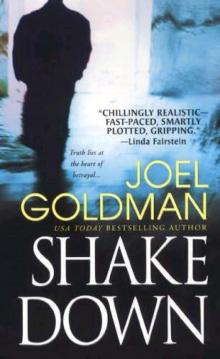 Jack Davis Mystery - 01 - Shakedown
Jack Davis Mystery - 01 - Shakedown Stone Cold as-1
Stone Cold as-1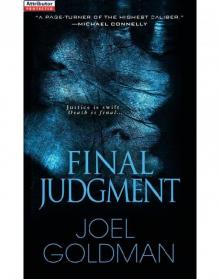 Final judgment lm-5
Final judgment lm-5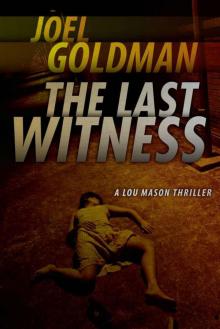 Lou Mason Mystery - 02 - The Last Witness
Lou Mason Mystery - 02 - The Last Witness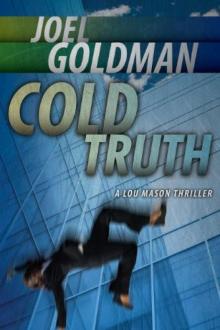 Lou Mason Mystery 03-Cold Truth
Lou Mason Mystery 03-Cold Truth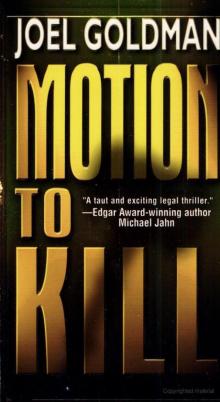 Motion to Kill
Motion to Kill Die, Lover, Die!
Die, Lover, Die!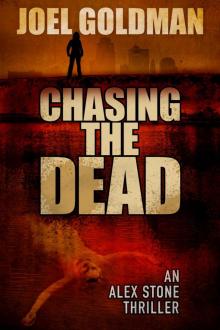 Chasing The Dead (An Alex Stone Thriller)
Chasing The Dead (An Alex Stone Thriller)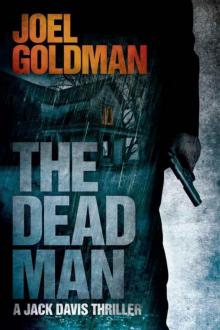 The Dead Man
The Dead Man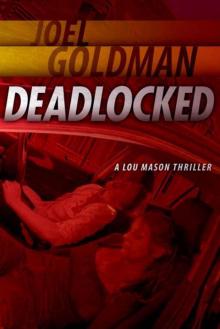 Deadlocked lm-4
Deadlocked lm-4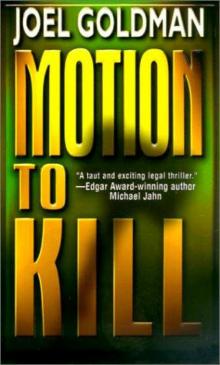 Lou Mason Mystery - 01 - Motion to Kill
Lou Mason Mystery - 01 - Motion to Kill Die, lover, die
Die, lover, die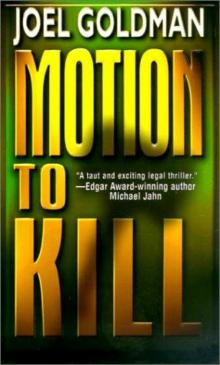 Motion to Kill lm-1
Motion to Kill lm-1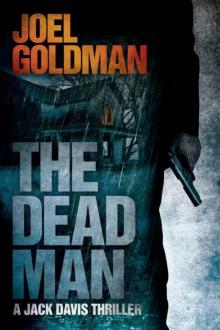 The Dead Man jd-3
The Dead Man jd-3